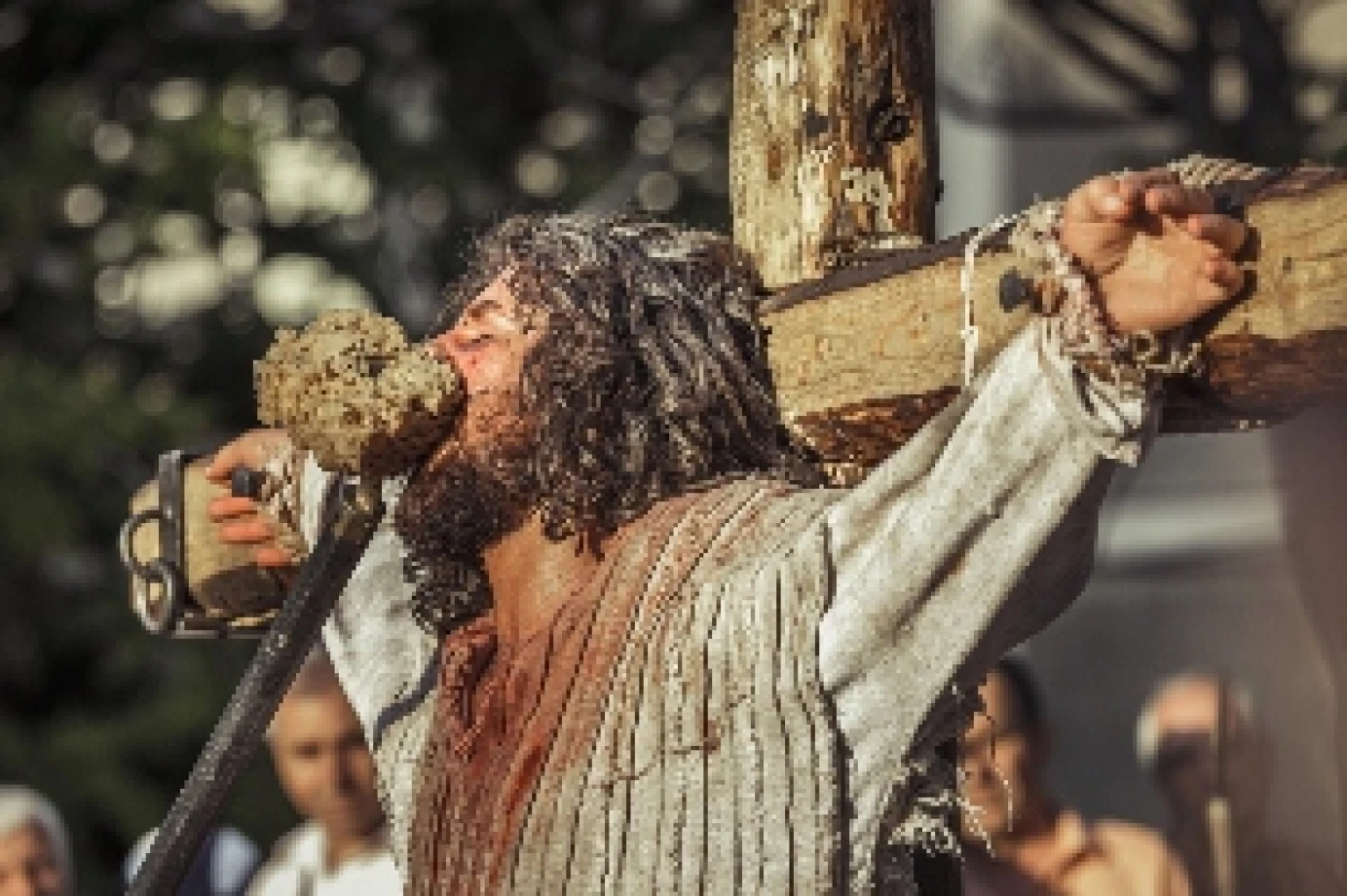The Fifth Word from the Cross
I am thirsty. John 19:28
When I decided to write reflections for each day in Holy Week, on the theme of the seven words from the cross, I bought three books on the subject. It is always good for a preacher to bring fresh bread! Up to now, they have been very helpful, but it strikes me that the authors, like myself, find this the most difficult of the ‘words’ to reflect on, partly, because it appears so ordinary. ‘I am thirsty’. We have all said exactly the same words, though not in the same circumstances. We all have had a glimpse of what it is to thirst, perhaps in a hot climate when a thirst comes upon us, and we feel we could consume the ocean. At that moment, everything else is in second place: we just need a long, cool drink.
The ordinariness of the words are indeed a very important reminder to us of the humanity of Jesus Christ. The One hanging on this cross on Calvary is fully divine, but also, and as completely, fully human. At first it is his sheer humanity we notice at this point, and indeed the sheer physicality of the crucifixion. The pain of thirst is part of the sheer horror of the punishment Jesus is suffering at this time. The commentator Don Carson, writing on this passage, notes that: ‘a man scourged, bleeding and hanging on a cross under the Near–Eastern sun would be so desperately dehydrated that thirst would be part of the torture.’
But, there is more to these words, and the more is noted by John as he introduces them: ‘After this, Jesus knowing that all was now finished, said (to fulfil the scripture), “I thirst”.’ the words from the cross are coming thick and fast at this point, and we will leave reflection on the ‘finished’ aspect until tomorrow; but those little words in the brackets are vital –’to fulfil the scripture’. Don Carson writes: ‘Others may unconsciously play their part in the divine plan of redemption, but not Jesus…’ and he continues, ‘John wants his readers to understand that every part of Jesus’ Passion was not only in the Father’s plan of redemption, but a consequence of the Son’s direct obedience to it.’ Jesus knows that he is fulfilling the scripture at every point. That does not mean that he says these words just for the sake of it – of course not – he was actually slaked and dry. But, as he says it, he knows that another piece of the jigsaw is being put into place, another fulfilment of the plan of God revealed in the Hebrew scriptures is becoming real through him.
In this case, which scripture being fulfilled? It is not immediately evident. It could be part of the psalm we mentioned yesterday, Psalm 22, when it says, in verse 15: ‘My strength is dried up like a potsherd, and my tongue sticks to my jaws; you lay me in the dust of death’. But it is more likely to be another psalm, which John has already quoted twice in his Gospel, Psalm 69:21: ‘They gave me poison for food and for my thirst they gave me sour wine to drink.’ If so, Jesus already knew what drink he would be offered. And there it stood at the foot of the cross, in John 19:29: ‘A jar of sour wine stood there, so they put a sponge full of the sour wine on a hyssop branch..’(hyssop was used to sprinkle the blood of the Passover), ‘and held it to his mouth’. And Jesus drinks it.
This drink is not to be confused with the wine mixed with myrrh offered to him while carrying the cross. That was a drink to numb pain. He refused it. This drink added to the pain. He received it.
Mrs Cecil Frances Alexander wrote a whole hymn on these words, ‘I am thirsty’. It is a bit sentimental, as many of the most memorable hymns are, but it is worth reflecting on two of the verses:
